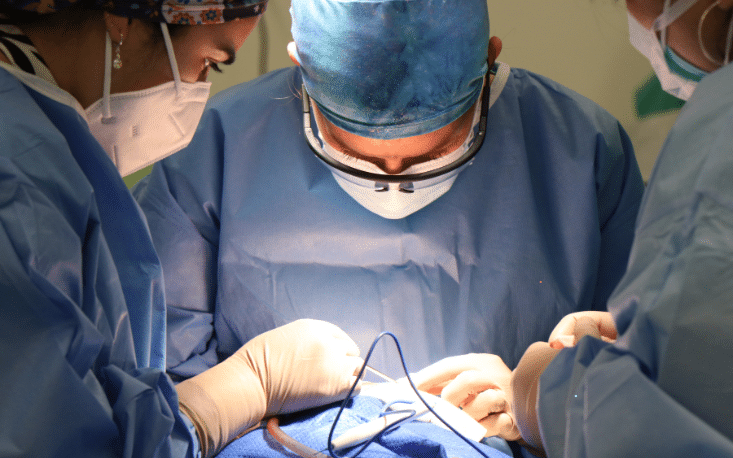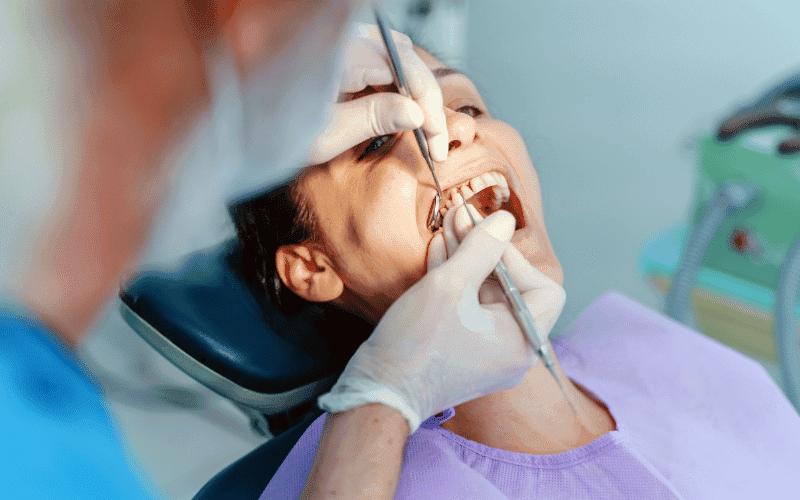ONLINE SCHEDULING AND VIRTUAL CONSULTS AVAILABLE

How To Reduce Swelling After Oral Surgery?

After oral surgery, you might expect some discomfort, but the swelling can catch you off guard. You’re not alone if you’re wondering how to manage it. Swelling is a common response to oral surgery, and while it’s usually nothing to worry about, it can be bothersome if not properly managed.
The good news?
There are plenty of effective ways to reduce swelling and speed up your recovery. Whether you’re looking for quick relief or long-term solutions, this guide will walk you through everything you need to know. From practical tips to natural remedies, you’ll find all the information you need right here.
Let’s dive into how you can get back to feeling your best as quickly as possible!
Understanding Post-Surgery Swelling
So, why does your face puff up like a balloon after oral surgery? Swelling is a natural part of your body’s healing process. When tissues are damaged during surgery, your body sends extra blood to the area, which causes inflammation. This is your body’s way of protecting the affected area, but it can be uncomfortable and sometimes alarming.
Swelling typically peaks around 48 to 72 hours after surgery, so don’t be surprised if it gets worse before it gets better. Factors like the type of surgery, your body’s natural response, and how closely you follow post-operative instructions all play a role in the severity of swelling.
Key Points to Remember:
- Swelling peaks around 48 to 72 hours after surgery.
- Mild swelling is normal and part of the healing process.
- Monitor your swelling: If it doesn’t improve after a few days or seems excessive, contact your dentist or surgeon.
Immediate Steps to Reduce Swelling
The first few hours after surgery are crucial for managing swelling. Start by applying ice packs to the affected area. Ice helps by constricting blood vessels, which reduces the flow of inflammatory fluids. Use an ice pack wrapped in a thin cloth, and apply it for 15-20 minutes at a time, with 20-minute breaks in between. Keep this up for the first 24 hours to keep swelling to a minimum.
Other Immediate Actions:
- Elevate your head: Keep your head raised, even while sleeping. Use extra pillows to prop yourself up. This helps prevent fluids from accumulating in the affected area.
- Avoid strenuous activities: Physical exertion increases blood flow, which can worsen swelling. Take it easy and allow your body to heal.
- Stick to soft foods: Chewing can irritate the surgical site. Opt for soft, easy-to-swallow foods to avoid adding pressure to the area.
Natural Remedies to Alleviate Swelling
Looking for natural ways to ease the swelling? Simple home remedies can make a big difference. Start with saltwater rinses. After the first 24 hours, gently rinse your mouth with warm saltwater. This helps reduce bacteria and soothes the swollen area.
Try These Natural Remedies:
- Aloe Vera: Known for its anti-inflammatory properties, aloe vera can help reduce swelling when applied topically around the swollen area.
- Chamomile Tea: Sip on chamomile tea, which has anti-inflammatory effects and can also be used as a cold compress.
- Stay hydrated: Drinking plenty of water helps flush out toxins and reduces inflammation. Avoid caffeinated or alcoholic beverages that can dehydrate you.
These natural methods can be a soothing addition to your recovery routine, helping you feel better sooner.
Medications and Over-the-Counter Solutions
Sometimes, natural remedies aren’t enough, and that’s where medications come in. Over-the-counter anti-inflammatory medications, like ibuprofen, can be very effective in reducing swelling and pain. Make sure to follow the dosage instructions carefully to avoid any complications.
Effective Medications:
- Anti-inflammatory meds: Ibuprofen (Advil, Motrin) helps reduce both swelling and pain.
- Pain relievers: Acetaminophen (Tylenol) can be used for pain relief, but it doesn’t reduce swelling, so consider pairing it with an anti-inflammatory.
- Topical treatments: Some gels and creams are designed to reduce swelling when applied directly to the skin. Always consult your dentist before using any topical treatments on or near the surgical site.
These options can provide quick relief, allowing you to focus on healing and getting back to your routine.
Foods and Drinks That Help Reduce Swelling
Your diet plays a significant role in your recovery. Eating the right foods can help reduce swelling and promote healing. Stick to soft, cold foods like yogurt, smoothies, and applesauce, which are easy to eat without aggravating the surgical area.
Best Foods and Drinks:
- Cold foods: Ice cream, smoothies, and yogurt can help soothe the area and reduce swelling.
- Soft foods: Mashed potatoes, scrambled eggs, and oatmeal are gentle on your mouth and easy to swallow.
- Nutrient-rich options: Foods high in vitamins C and K, like spinach and broccoli, help with healing.
Avoid These:
- Spicy foods: They can irritate the surgical site and increase swelling.
- Crunchy foods: Chips, nuts, and anything with a hard texture can damage the area.
- Alcohol and caffeine: These drinks can dehydrate you, which can worsen inflammation.
Following these dietary tips will not only help reduce swelling but also support your overall recovery after oral surgery Plantation.
When to Seek Professional Help?
While swelling is a normal part of recovery, there are times when it could signal a problem. If your swelling worsens after three days or is accompanied by severe pain, fever, or pus, it’s time to contact your dentist or surgeon. These symptoms could indicate an infection or other complications that need immediate attention.
Signs to Watch For:
- Swelling doesn’t improve: If there’s no reduction after 72 hours.
- Severe pain: Beyond what you’d expect from the surgery.
- Fever or chills: Possible signs of infection.
- Pus or unusual discharge: Indicates infection at the surgical site.
What to Do:
- Contact your dentist or surgeon: Don’t wait if you notice any of these symptoms.
- Follow their advice: They may prescribe antibiotics or recommend additional treatments.
Reducing swelling after oral surgery is essential for a smooth recovery. By following these practical tips and remedies, you can manage swelling effectively and promote healing. Always monitor your symptoms and reach out to your dentist if anything feels off. Remember, taking the right steps now will help you get back to feeling your best as quickly as possible.





